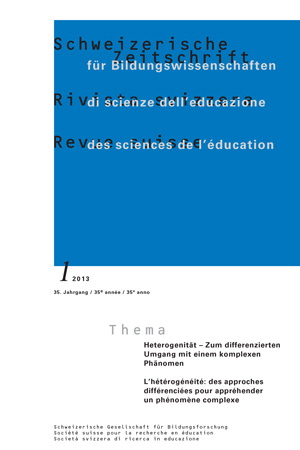Implementation of Integrated Schooling in Compulsory Education: Analysis of classroom teachers’ beliefs and optimism in the canton of Zurich
Abstract
Since the adoption of Zurich’s New Act on Compulsory Education in 2005, the cantonal education system is legally bound to integrate as many as possible special educational needs children into regular classes. To foster the pupils’ learning in an optimal way, teachers are required to create learning environments adapted to heterogeneous groups and to thepupils’ individual abilities and needs. Our paper explores the conditions under which teachers are optimistic that the implementation of an inclusive school in public compulsory education is to succeed. Data were collected in the context of the so-called “Heterogeneity Project” (University of Zurich, Institute of Education) by means of a standardized online survey, which was completed by 385 teachers of 19 schools in the canton of Zurich. We examine the effect of four predictors on the latent construct ‘optimism about integration’ by means of structural equation modelling. The results show that optimistic beliefs about integration are primarily predictable by the use of enriched teaching practices and by the classroom proportion of students with behavioural problems. The discussion section reflects on the analytical procedure and the practical relevance of our results.
License

This work is licensed under a Creative Commons Attribution 4.0 International License.



